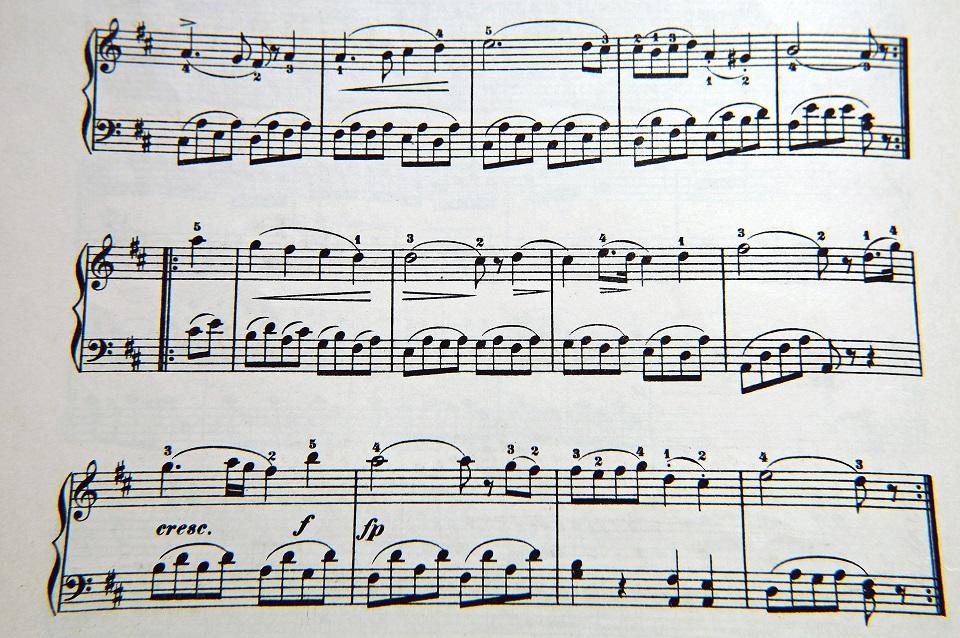It's a tale as old as time: somebody with an amazing singing voice enters a TV talent show, gets the recording deal, and heads into the recording studio to cut an album and make it big.
This is what happened to Angelica Hale, who was nine when she competed on the 12th season of America's Got Talent.
Others decide to post videos of themselves singing onto the internet or social media until they get discovered thanks to all of the "likes" and "shares" they get, just like what happened to Justin Bieber at 13 years old!
Singers like Justin Bieber and Angelica Hale both have incredible vocal talent and are the envy of many aspiring singers.
This isn't the story for a lot of classical, theatre, and pop singers, though. We aren't all born with incredible voices and perfect pitch, a lot of us have to work really hard to hone them.
Singers need to study music theory and work with voice coaches or singing tutors to get their singing up to the level of the world's most popular singers.
This means that these singers will have to go through graded singing exams rather than round after round of a televised reality show.
Generally, there are 8 grades for singers with each grade building on the content of the previous one and singers in New Zealand can study for these grades as part of their progression in singing.
If you or your child are thinking about becoming a singer in the future, here's a quick guide to singing grades and what you need to know about them.

The History of Graded Singing Exams
Over in the UK in the 19th century, there were two Royal Music Academies that joined forces to create an examining body to test music students and singers.
This was in reaction to "for-profit" enterprises that were happy to dish out music qualifications and accolades for the right price regardless of their talent or skill.

The goal of Sir Alexander MacKenzie and George Grove, the two men behind the idea, was to find a fairer way to judge a musician's level without any palms being greased. The result was the ABRSM (Associated Board of the Royal Schools for Music) and the graded exams that are so commonplace all over the world.
They started with just two grades that were equivalent to Grades 6 and 7 by today's standard and called them "Junior" and "Senior".
The Associated Board (the name it went by at the time) was pressured to create exams and levels for younger musicians as you can imagine, the two grades they had were only for very advanced musicians and singers.
People wanted there to be a system of assessment in place so that younger musicians could work their way to those levels. This led to the introduction of the "Lower" and "Higher" divisions.
As you can imagine, the Associated Board started to introduce other levels and exam types. 31 years after the first exams were created, the aural exam was introduced.
The Associated Board became the ABRSM in 1933 and introduced the eight-grade system that we recognise today and see used in lots of countries around the world.
The system is important as it provides musicians and singers with enough levels so that anyone can be tested and graded whether they've just started their musical journey or have spent years honing their craft.
That doesn't mean that you technically have to do every single grade. In some cases, students can opt to skip a grade.
A Quick Guide to Graded Exams
If you've been paying attention, you'll know that there are a total of 8 grades in music and singing exams.

Thus far, we've just been looking at ABRSM, but there are 4 examination boards active in New Zealand. We've already mentioned the ABRSM, but you can also do exams with Trinity College London, the New Zealand Music Examinations Board, and St. Cecilia.
Which one you choose depends on what you need your grades for. For students with aspirations of attending one of the Royal colleges of music in the UK, then you'd likely want to stick with ABRSM.
However, this isn't something you need to worry about too much as younger singers might be a long way from deciding on going to university or attending a conservatoire for their singing.
There are a lot of similarities across the examination boards including the format of exams, though there are also key differences, but you'll likely never need to know what these are because students tend to do their grading with one exam board and stick with them.
Generally, singing students in their grading will have to:
- perform segments from 2 or 3 approved pieces with piano accompaniment
- perform a traditional piece without piano accompaniment
- do some sight-reading
- complete the aural exam
- complete supplementary tests depending on their grade and examining board
For example, supplementary tests may cover vocal exercises such as arpeggios, improvisation, or music theory.
Find out how you can get a distinction at every grade.
Further Information on Graded Exams
As you could guess, the lower grades are for beginners or novices while the higher grades are for singers or vocalists that have been training for a while.
This means that the exams and grades get more difficult as you go along.
Let's have a quick look at the different singing grades and the sorts of things you can expect at each level.
Grades 1-4
It's quite common to split the grades into two groups: Grades 1 through 4 and Grades 5 through 8. The lower grades are generally for vocalists and singers with very little formal training.
In this group of grades, the change in technical difficulty from level to level is quite slight, though the song lists tend to be where students will see the biggest change in terms of challenge.
It's in the supplementary exams where students will be challenged and if you choose to skip a grade, this will be where you're likely to have to do the most work.
The length of the exams also tends to increase with the level. For example, in Grade 1, there are only 4 minutes of singing while Grade 2 and Grade 3 have five and six minutes of singing respectively.
Much like the supplementary exams, the music theory portion of the grades will also scale to match the level. In Grade 1, you'll need to know the basics of musical notation, and recognise time signatures, major keys, and scales.
Grade 3, on the other hand, can include simple and compound time signatures, rhythm writing, and major and minor scales and keys.

Grade 5
Grade 5 could be described as the border between casual and serious singers. By the time you reach Grade 5 in singing, you may be toying with the idea of singing professionally or at least making singing a large part of your life.
Grade 5 is also the gateway to the higher grades and while you can skip grades between Grades 1 and 4, to do any of the grades beyond Grade 5, you have to have done Grade 5.
This means that if you have your sights set on reaching Grade 8, the prerequisite grade for a lot of the top music schools, Grade 5 is one of the obligatory grades.
The practical exam at Grade 5 is very similar to Grades 1 through 4 with a traditional piece, sight-reading, aural tests, and pieces performed from an approved song list. However, the Grade 5 music theory exam is more complex.
Grades 6-8
Grades 6 through 8 are at the business end of the musical grading system and offer both complex practical and theoretical musical challenges.
Students will be looking beyond simple melodies and can now choose from five different song lists as opposed to the three song lists that were available at the lower grades.
Naturally, the music theory parts become increasingly complicated with students being tested on things like harmonic vocabulary and modulation, score reading, and continuing a melody once they're been given the opening.
With every singing grade, you'll be tested on both practical and theoretical music elements and it's important that every student knows exactly what's expected of them.
While organising the system into numbered grades from 1 to 8 is unique to music and singing exams, these levels still follow the same idea as any other subject you could learn in school whereby students are tested on progressively complex theoretical knowledge and how they apply this knowledge to a specific skill, which in this instance, is singing.
To get the most out of singing grades, we have plenty of singing exam tips to help you out.
And don't forget that if you need help with singing, performance, understanding classical music, or anything else to do with singing and grades, you can get help from a private singing tutor!
Summarise with AI:
















